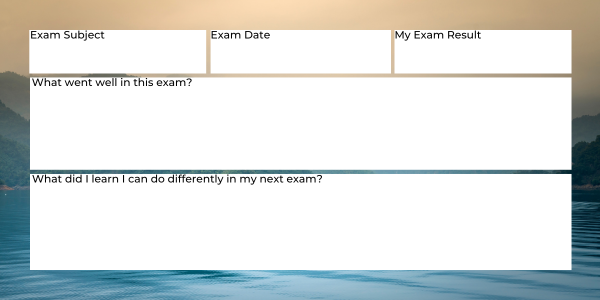Reflection as a Tool to Pass Exams
It can be tempting when you complete an exam to forget all about it. Many times I’ve heard learners come out of exams and talk of burning their books, hopefully they’re speaking metaphorically. It’s true that it’s healthy not to dwell on something that can induce anxiety for too long. Reflection is a more purposeful approach to reviewing what happened and using it to improve your performance and your experience.
Any learning process involves a process of progress through stages of learning, absorption of materials, practise of skills and often assessment. Progress doesn’t come about unless you actively learn from each experience along the way, including exams. This is particularly the case for courses which include lots of assessments.
CILEX learners, for example, like all law students are faced with lots of assessments throughout their period of study and unlike Solicitors Qualifying Exams, which take place in close proximity to one another, CILEX Professional Qualification exams are spread out over a period of years, with two exam sessions in each year. This means it can take longer to study, it also means though, that there are lots of opportunities to reflect, learn from exam experiences and then make changes to do better and enjoy a smoother experience the next time.
It is really important when we reflect, that it’s not a torturous process of second guessing and punishing ourselves. Reflection can actually help us move on and put the experience of an exam behind us while taking what we can learn from it to apply next time.
We can make sure that we reflect constructively by forming a habit of taking the same reflective steps after each exam.
- When you finish each exam, as part of your process to wind down and relax, while everything is fresh in your mind, reflect on what happened.
- Make a record of the subject and date you sat the exam.
- Ask yourself, what went well? That’s what you want to keep doing. This might be your timing, your recall, your revision and preparation, among other things.
- Ask yourself, what could have gone better?
- If something could have been better, what could you have done differently? That is learning that you can apply for next time. This might be, to be more careful with your timing or to make sure you write a plan for your answers, it might be to read the questions more slowly or carefully.
- Next time you are preparing for an exam and when you’re practising on assignments and mock exams, put into action some practical steps to address the things you learned as part of your reflection.
- When you receive your exam result, record the result, then you can see your marks improve with each exam you sit as you implement your learning.



